|
Media contact
Washington, DC (October 23, 2023) – The Journal of Science Policy & Governance (JSPG) is pleased to release Volume 23, Issue 01, the 2023 standard summer issue of the journal. “This journal issue features articles which supply robust and insightful analyses on a wide variety of relevant, impactful policy issues, ranging from maternal mental health care to bolstering the bioeconomy workforce through improvements in experiential learning. I am proud of the effort and contributions supplied by both authors and editors alike,” said Dilara Kiran, JSPG Assistant Editor-in-Chief. “The summer standard issues at JSPG showcase the incredible breadth of science policy, and this issue is no exception. These ten articles highlight several key areas where science can have an impact in policy or daily life. I’m very proud of the work our authors, editors, and staff have put in to make this issue a success,” said Andy Sanchez, JSPG Editor-in-Chief. The summer standard issue includes ten articles addressing a range of topics, including access to drinkable water for the unhoused, reducing harmful algal blooms in the U.S. Great Lakes, climate change induced migration, marine management, clinical trial data transparency, reproductive equity, and setting a path forward for U.S. low earth orbit activities. “On behalf of the journal, we are proud to showcase the work and ingenuity of 34 international authors in this issue, targeting critical and timely matters from space policy to medical regulations to human rights and more. Articles extend the research-to-action pipeline a step further with evidence-based analyses and recommendations around challenges from the state to global level, leveraging vantage points from academic, nonprofit, private, and public sectors. As ever, the diversity of our authors’ perspectives strengthens the concepts highlighted in this issue and advances policy conversations toward sustainable and equitable solutions.” said Julianne McCall, JSPG CEO & Managing Publisher. ### ABOUT JSPG
The Journal of Science Policy & Governance is an open-access peer-reviewed publication dedicated to elevating students, post-docs, policy fellows and young scholars in science, technology, and innovation policy and governance worldwide. JSPG publishes articles for audiences in policymaking settings. Since 2011, JSPG has served as a publication and training platform for students and early career professionals to orient their scientific approach toward issues in science policy. Visit sciencepolicyjournal.org and follow on social media (LinkedIn and X). For Immediate Release mEDIA CONTACTS
WASHINGTON, DC (March 28, 2022) - The Journal of Science Policy & Governance (JSPG) is pleased to release Volume 20, Issue 01, the 2021 standard winter issue of the journal. "I'm thrilled to be publishing another exemplary standard issue. Because standard issues are not organized around one theme, they excel both at exhibiting the broad expertise of JSPG authors and demonstrating the overlapping areas of interest among early career members of the science policy community,” said Ben Wolfson, JSPG Assistant Editor-in-Chief for Standard Editions. “It's clear that while identifying real global issues, our authors are also passionate about how science policy can contribute to finding solutions to these issues.” The 2021 standard winter issue of JSPG includes 9 articles that address topics on environmental justice for communities impacted by coal ash; carbon-neutral practices for conference planning; sustainable nutrient management regulations; the bio-economy; energy access and equity; evidence in state policymaking, insurance regulations impacted by climate change; and current and future sustainable supply chain practices. “With JSPG’s 10 year anniversary soon approaching, I continue to be inspired by the innovative science policy ideas shared by our early career authors in the journal’s volumes over the years,” said Adriana Bankston, JSPG CEO & Managing Publisher. “This standard issue is no exception, and I look forward to continuing to elevate these ideas across our platforms and to see them come to fruition towards building a better society by the next generation." ### About JSPG
The Journal of Science Policy & Governance (JSPG) is an international, open access peer-reviewed publication managed by and for students, policy fellows, and young scholars in science, technology, and innovation policy. JSPG publishes high-quality articles covering the widest range of topics in formats that are accessible to policymakers. Since 2011, JSPG has served as a vehicle for students and early career researchers to bolster their research and writing credentials in science policy. Visit sciencepolicyjournal.org and follow on Twitter @SciPolJournal to learn more. FOR IMMEDIATE RELEASE MEDIA CONTACTS
UNESCO Ana Persic [email protected] + 33 (0) 1 45 68 17 00 MGCY Victoria Lovins [email protected] 352-262-7304 JOURNAL OF SCIENCE POLICY & GOVERNANCE Adriana Bankston [email protected] 442-217-7434 WASHINGTON, DC (February 21, 2022) - The Journal of Science Policy & Governance (JSPG), the UN Educational, Scientific and Cultural Organization (UNESCO) and the Major Group for Children and Youth (MGCY) are pleased to announce a call for papers and competition on shaping the future of global scientific practices in the light of the COVID-19 pandemic, focused on Open Science Policies as an Accelerator for Achieving the Sustainable Development Goals. While the open science movement has gained significant momentum over the last several years, the COVID-19 pandemic has highlighted the need for increased access to scientific knowledge and fostering international scientific collaboration. It has also created opportunities for institutions and governments to develop tools needed for highlighting the crucial role of basic sciences for sustainable development. “Closed science models are at an impasse, because they amplify inequalities between countries and researchers, and because they only make scientific progress available to a minority. The health crisis has shown the incredible potential of scientific collaboration, which allowed us to sequence the genome of the COVID-19 virus so quickly,” said Audrey Azoulay, UNESCO Director-General. “The solidarity shown by the scientific community is a model for the future: in the face of global challenges, we need collective intelligence, today more than ever. As countries call for international scientific collaboration, as the scientific community, civil society, innovators and the private sector mobilize in these unprecedented times, the urgency of the transition to open science has never been more clear.” We invite students, post-doctoral researchers, policy fellows, early career researchers and young professionals from around the world to develop bold and innovative policy and governance ideas for exploring the untapped potential of open science to create a better society, and push for the attainment of the UN Agenda 2030 Sustainable Development Goals (SDGs). Submission deadline: July 10, 2022. The call for papers and competition will result in a Special Topics Issue of JSPG to be released in 2022. Authors of the top three publications will have the opportunity to present in UNESCO and MGCY events on open science. This Special Issue is supported in-kind by outreach partners from the Global Young Academy Open Science Working Group. “Open science, particularly in the wake of the COVID-19 pandemic, is critical to achieving the Sustainable Development Goals and to creating a more equitable global society. Young people, especially young scientists and engineers, have an important role to play in the process of open science policy creation and implementation because it is our lives and our careers that will be the most powerfully impacted by open science,” said Victoria Lovins, Co-Platform Coordinator, Science-Policy Interface, Major Group for Children and Youth (MGCY). Leading up to the submission deadline, JSPG will organize a series of training sessions to provide prospective authors with opportunities to practice policy writing for the Special Issue, and to inspire and empower them with expert perspectives on open science policies to inform their submissions. These events will include a science policy paper writing workshop on open science policy development, collaborative governance, scientific culture, and international cooperation, and a series of four webinars where content experts will discuss open science topics to be covered in the Special Issue. “The COVID-19 pandemic has highlighted the need for increased sharing of scientific knowledge and collaboration across the globe. Now more than ever, it is critical to break down barriers to accessing this knowledge across countries and within our local communities, and to build a common vision for a better society,” said Adriana Bankston, JSPG CEO and Managing Publisher. “JSPG is thrilled to partner with UNESCO and MGCY on this call for papers, and to incorporate the innovative policy ideas developed by the next generation into shaping the future of our society by leveraging the potential of open science.” ### About JSPG
The Journal of Science Policy & Governance is a nonprofit organization and open-access peer-reviewed publication managed by and for students, policy fellows and young scholars in science, technology and innovation policy. JSPG publishes high-quality articles covering the widest range of topics in formats that are accessible to policymakers. Since 2011, JSPG has served as a vehicle for students and early career researchers to bolster their research and writing credentials in science policy. Visit sciencepolicyjournal.org and follow on Twitter @SciPolJournal to learn more. About UNESCO Created in 1945, the United Nations Educational, Scientific and Cultural Organization (UNESCO) builds peace by fostering international cooperation in education, the sciences and culture. As the only specialized United Nations agency with an explicit mandate for science, UNESCO promotes international scientific cooperation, helps developing countries to build their scientific and technological capacity and supports Member States’ efforts to develop effective, inclusive public policies. The Organization’s work extends to standard-setting in its fields of competence. One of these standard-setting instruments is the UNESCO Recommendation on Open Science, adopted by 193 countries in November 2021. This Recommendation is the first international framework to provide guidelines on how to use open science to make science more equitable and inclusive. Visit https://en.unesco.org and follow on Twitter @UNESCO to learn more. About MGCY The Major Group for Children and Youth is the UN General Assembly-mandated and self-organized mechanism for young people to meaningfully engage in certain UN processes. MGCY acts as a bridge between young people and the UN system in order to ensure that their right to meaningful participation is realized. MGCY does so by engaging formal and informal communities of young people, in the design, implementation, monitoring, follow-up, and review of sustainable development policies at all levels of the UN system. Visit https://www.unmgcy.org and follow on Twitter @UNMGCY to learn more. About the GYA Working Group on Open Science Recognizing that open science fosters research communication that is inclusive, effective, and conducive to collaboration and discovery across fields and locations, the GYA working group on Open Science aims to inform current transformations in publication systems, institutions and technologies by (1) garnering and voicing young researchers’ views on which scientific outputs should be disseminated, how, to whom and with which expectations; (2) investigating the challenges and opportunities involved in implementing open science mandates across highly diverse research environments; (3) promoting open science mandates across the GYA membership and partner organizations. The Global Young Academy is an independent science academy of 200 outstanding early- to mid-career researchers from six continents who are selected from across disciplines based on their academic excellence and commitment to engage with society. The mission of the GYA is to give a voice to early-career researchers across the globe. Visit https://globalyoungacademy.net/activities/open-science/ and follow @GlobalYAcademy on Twitter to learn more. FOR IMMEDIATE RELEASE MEDIA CONTACTS
Adriana Bankston |
||||||||||||||||||||||||
|
| ||||||||||||
JSPG PARTNERS WITH AAAS S&T POLICY FELLOWSHIPS ON CALL FOR PAPERS FOR 2022 SUMMER STANDARD ISSUE
1/31/2022
Kat Song
[email protected]
(202) 326-6614
Adriana Bankston
[email protected]
(442) 217-7434
Training the Next Generation of Leaders in Science and Technology Policy
With the Journal of Science Policy & Governance
In the midst of a global pandemic, evidence-based policymaking is critical for our future, and the views of the next generation in shaping the policy landscape are more important now than ever. We invite students, postdocs, policy fellows, early career researchers, and young professionals in science policy to contribute their ideas on the future of policymaking on a number of broad topics that address important societal challenges. Submission deadline: May 22, 2022.
The partnership helps JSPG and STPF advance a shared mission of developing the next generation of leaders in science and technology policy and enabling them to develop and execute relevant and timely policy solutions. Hosted at the world’s largest multidisciplinary scientific society, the AAAS STPF program has engaged thousands of scientists and engineers to contribute first-hand to the policymaking process via yearlong fellowships in the Federal government. As part of this mission, JSPG fosters training and professional development of the next generation through publishing early career work in science policy in a variety of formats, and elevating the ideas put forth in publications through international platforms.
“The importance of early career contributions to evidence-based policy cannot be overstated. As an organization that elevates early career voices, JSPG is thrilled to partner with AAAS STPF on this standard issue, which seeks to bring the ideas of the next generation to the forefront and provide them with the educational tools needed to put these ideas into action,” said Adriana Bankston, JSPG CEO & Managing Publisher.
The Journal of Science Policy & Governance (JSPG) is a nonprofit organization and open access peer-reviewed publication managed by and for students, policy fellows, and young scholars in science, technology, and innovation policy. Since 2011, JSPG has served as a vehicle for students and early career researchers to bolster their research and writing credentials in science policy. Visit sciencepolicyjournal.org and follow on Twitter @SciPolJournal to learn more.
ABOUT AAAS S&T POLICY FELLOWSHIPS
AAAS Science & Technology Policy Fellowships (STPF) provide opportunities to outstanding scientists and engineers to learn first-hand about policymaking and contribute their knowledge and analytical skills in the policy realm. Fellows serve yearlong assignments in the Federal government and represent a broad range of backgrounds, disciplines, and career stages. Each year, STPF adds to a growing corps of nearly 4,000 fellowship alumni. STPF alumni are policy-savvy leaders working across academia, government, nonprofits, and industry to serve the nation and citizens around the world. Visit the STPF website at AAAS.org/STPF and follow @AAAS_STPF on Twitter to learn more.
JSPG and UCL STEaPP Launch 2022 Call for Papers and Competition on Innovations in Science Diplomacy: Structures, Policies & Governance for the New Decade
“As we reflect on the essential role that young people play in international science diplomacy, JSPG and UCL STEaPP are thrilled to launch this call for papers and competition facilitating substantial engagement of the next generation in shaping the future the field for a better global society in the next decade and beyond,” said Adriana Bankston, JSPG CEO and Managing Publisher.
Following submission review via the JSPG editorial review process, a competition review committee will select the top 3 publications. Authors of the top 3 articles will be invited to present at a dedicated science diplomacy event featuring science diplomacy representatives of different countries and international organizations in Fall 2022.
JSPG and UCL STEaPP will organize 2 webinars with expert perspectives on science diplomacy, and a policy writing workshop to help prospective authors improve their submissions to the issue. The events will be co-organized with and include participants from outreach partner organizations. Register for the events here.
"Many of the challenging global issues of our times are underpinned by STI, and require evidence-informed, multi-stakeholder and transdisciplinary approaches. UCL STEaPP and JSPG look forward to emerging scholars and young leaders’ fresh look and innovative ideas which are key to building better science diplomacy interfaces, governance structures and global policies,” said Joanna Chataway, Professor and Head of Department of Science Technology, Engineering & Public Policy, University College London.
The Journal of Science Policy & Governance is a nonprofit organization and open-access peer-reviewed publication managed by and for students, policy fellows and young scholars in science, technology and innovation policy. JSPG publishes high-quality articles covering the widest range of topics in formats that are accessible to policymakers. Since 2011, JSPG has served as a vehicle for students and early career researchers to bolster their research and writing credentials in science policy. Visit sciencepolicyjournal.org and follow on Twitter @SciPolJournal to learn more.
About UCL STEaPP
The Department of Science, Technology, Engineering and Public Policy (STEaPP) is part of the Faculty of Engineering Sciences at University College London. Its research encompasses several policy issues, including digital technology policy, urban and infrastructure policy, and energy and sustainability policy. It also focuses on science advice to governments, expertise in international organizations and science diplomacy. Its vision is to transform, through strong partnerships and communities, the relationship between science, technology, engineering, and public policy to ensure that new knowledge fully benefits society. Visit https://www.ucl.ac.uk/steapp/ and follow @UCLSTEaPP on Twitter to learn more.
About INGSA
The International Network for Government Science Advice (INGSA) is the leading global platform for policy exchange, capacity building, research and collaboration on the mechanisms and practices at the evidence-to-policy interface. Through workshops, conferences and a catalogue of tools and guidance, the network helps structure and strengthen these social, political and scientific interactions to improve the potential for evidence-informed policy formation at sub-national, national and transnational levels. Visit https://www.ingsa.org and follow @INGSciAdvice on Twitter to learn more.
About the European Union (EU) Science Diplomacy Alliance
The EU Science Diplomacy Alliance is a collaborative initiative launched in 2020 by a group of EU-funded science diplomacy projects to sustain and grow the networks, impact and momentum. The activities of the Alliance aim to further develop, maintain, and organise joint research projects, capacity building and training activities (such as open online courses, summer schools, trainings, etc.) on the topic of science diplomacy. Visit https://www.science-diplomacy.eu and follow @SciDipAlliance on Twitter to learn more.
About the GYA Incubator Group on Science Diplomacy in the Americas
Recognizing the gaps in scientific development and collaborations between North America, Central America, South America, the Caribbean, and Commonwealth countries, the Global Young Academy (GYA) Incubator Group on Science Diplomacy in the Americas aims to promote openness to scientific partnerships and to gain an understanding of current science diplomacy initiatives in the region. The Global Young Academy is an independent science academy of 200 outstanding early- to mid-career researchers from six continents who are selected from across disciplines based on their academic excellence and commitment to engage with society. The mission of the GYA is to provide a voice to early-career researchers across the globe. Visit https://globalyoungacademy.net/activities/science-diplomacy-in-the-americas/ and follow @GlobalYAcademy on Twitter to learn more.
JSPG Celebrates a Decade as a Publishing Leader in Science, Technology, and Innovation Policy
|
"This issue demonstrates the true breadth of expertise reflected in our authors at JSPG. I am particularly proud of how the authors have leveraged a critical eye to examine policy through the lens of environmental, health, regulatory and social justice needs,” said Ben Wolfson, JSPG Assistant Editor-in-Chief for Standard Editions. “Following in the precedents established by JSPG’s first standard issue, our authors continue to interrogate the impacts of science policy from university regulations to making policy recommendations addressing broad subjects such as regenerative agriculture and power grid resilience."
|
|
|
Similarly, 10 years ago, the first standard issue of JSPG had 7 outstanding articles addressing environmental policy areas such as reducing demand on groundwater sources and ocean acidification; health-related topics including research outputs related to Environmental, Health, & Safety, and the need for diversity in clinical trials; and ways to reform institutional infrastructures and incentives to fulfill our national objectives in research and highlight societal benefits of university research.
|
|
To reflect on these topics, JSPG’s Editor-in-Chief Rosie Dutt and CEO & Managing Publisher Adriana Bankston have co-authored a cover memo focused on empowering the next generation to leverage their innovative ideas published in the journal to make a positive impact in society today and into the future.
|
The Journal of Science Policy & Governance (JSPG) is a nonprofit organization and open-access peer-reviewed publication managed by and for students, policy fellows and young scholars in science, technology and innovation policy. JSPG publishes high-quality articles covering the widest range of topics in formats that are accessible to policymakers. Since 2011, JSPG has served as a vehicle for students and early career researchers to bolster their research and writing credentials in science policy. Visit sciencepolicyjournal.org and follow on Twitter @SciPolJournal to learn more.
Sudip Parikh joins the JSPG advisory board alongside other distinguished leaders who have been at the forefront of science policy for many years and in many cases have defined the field as we know it today. We are grateful for their continued guidance and expertise as we enter the next decade of innovation for the journal. Read more about Sudip Parikh here.
The Journal of Science Policy & Governance (JSPG) is a nonprofit organization and open-access peer- reviewed publication managed by and for students, policy fellows, and young scholars in science, technology, and innovation policy. Since 2011, JSPG has served as a vehicle for students and early career researchers to bolster their research and writing credentials in science policy. Visit sciencepolicyjournal.org and follow on Twitter @SciPolJournal to learn more.
The American Association for the Advancement of Science (AAAS) is the world’s largest general scientific society and publisher of the journal Science, as well as Science Translational Medicine; Science Signaling; a digital, open-access journal, Science Advances; Science Immunology; and Science Robotics. AAAS was founded in 1848 and includes more than 250 affiliated societies and academies of science, serving 10 million individuals. Science has the largest paid circulation of any peer-reviewed general science journal in the world. The nonprofit AAAS is open to all and fulfills its mission to “advance science and serve society” through initiatives in science policy, international programs, science education, public engagement, and more. For additional information about AAAS, see aaas.org.
JSPG, AAAS and The Kavli Foundation Release Special Issue on Shaping the Future of Science Policy
8/30/2021
Special Issue Inspired by the 75th Anniversary of Science, The Endless Frontier Released
JSPG News
All the latest news from the Journal of Science Policy & Governance.
Follow JSPG on Twitter, Facebook, LinkedIn, Instagram, and YouTube.
Join our monthly newsletter.
Archives
April 2024
March 2024
October 2023
September 2023
July 2023
June 2023
April 2023
March 2023
January 2023
December 2022
October 2022
September 2022
August 2022
July 2022
June 2022
May 2022
April 2022
March 2022
February 2022
January 2022
November 2021
September 2021
August 2021
July 2021
June 2021
April 2021
January 2021
December 2020
October 2020
September 2020
August 2020
July 2020
June 2020
May 2020
April 2020
February 2020
December 2019
November 2019
September 2019
August 2019
April 2019
March 2019
February 2019
January 2019
November 2018
October 2018
September 2018
April 2018
February 2018
December 2017
Categories
All
Advisory-board
Ambassador
Ambassador Spotlight
Ambassador Spotlight Series
Announcement
Award
Blog
Climate
Diplomacy
Editor
Environment
Event
Fellow
Governing Board
JSPG10
News
Open Science
Partnership
Policy
Policy Memo Competition
Press Release
Special Issue
Sponsorship
Staff
Summer Standard Issue
Sustainable Development
Volume Release
Webinar
Winter Standard Issue

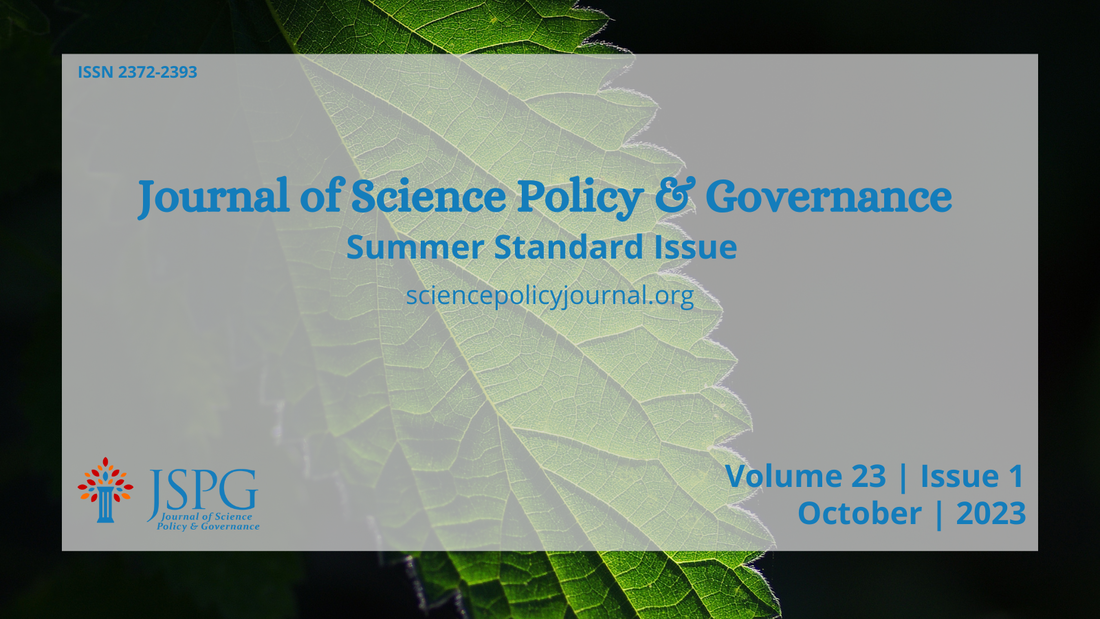
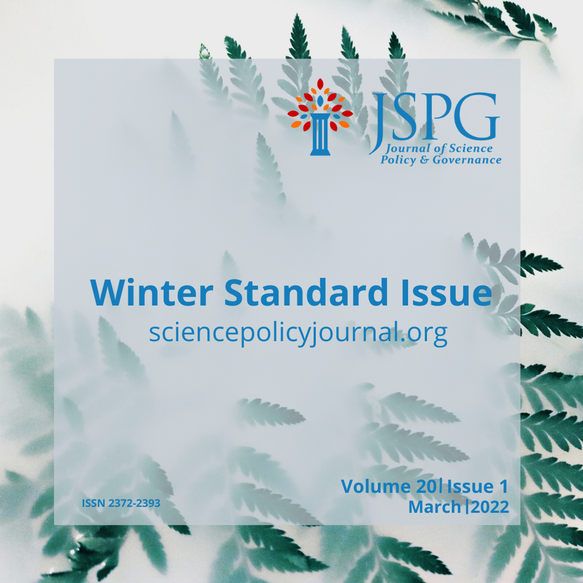

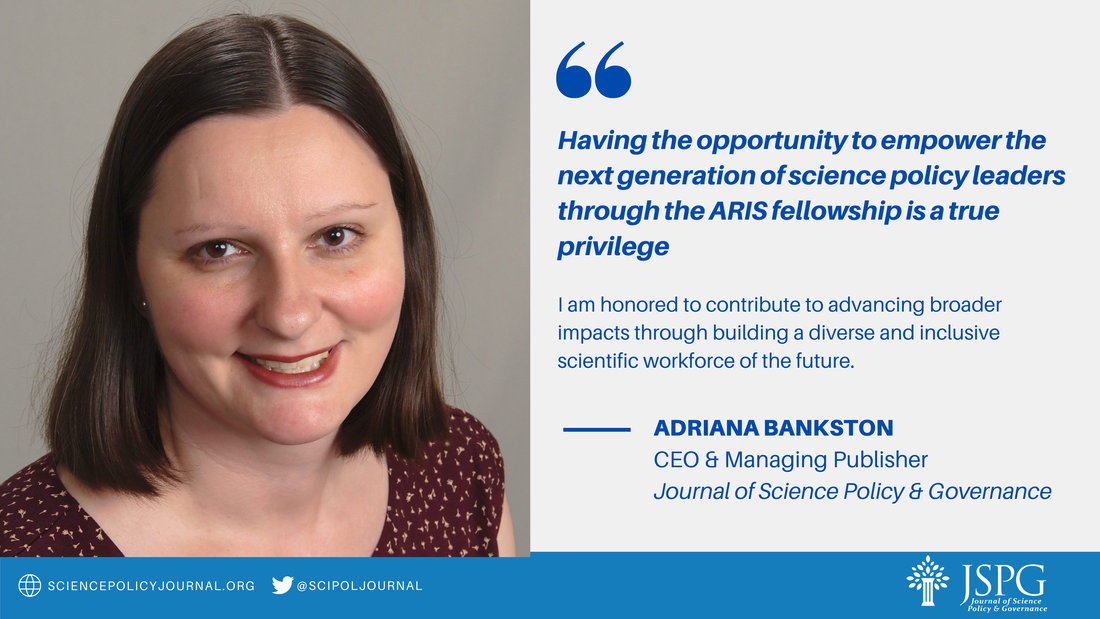


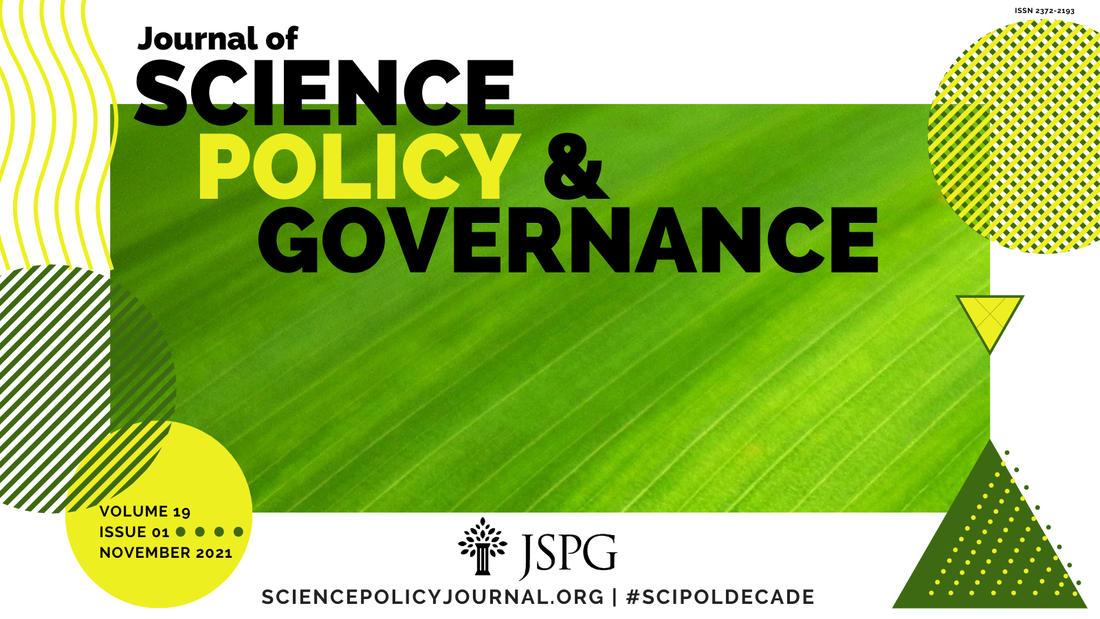



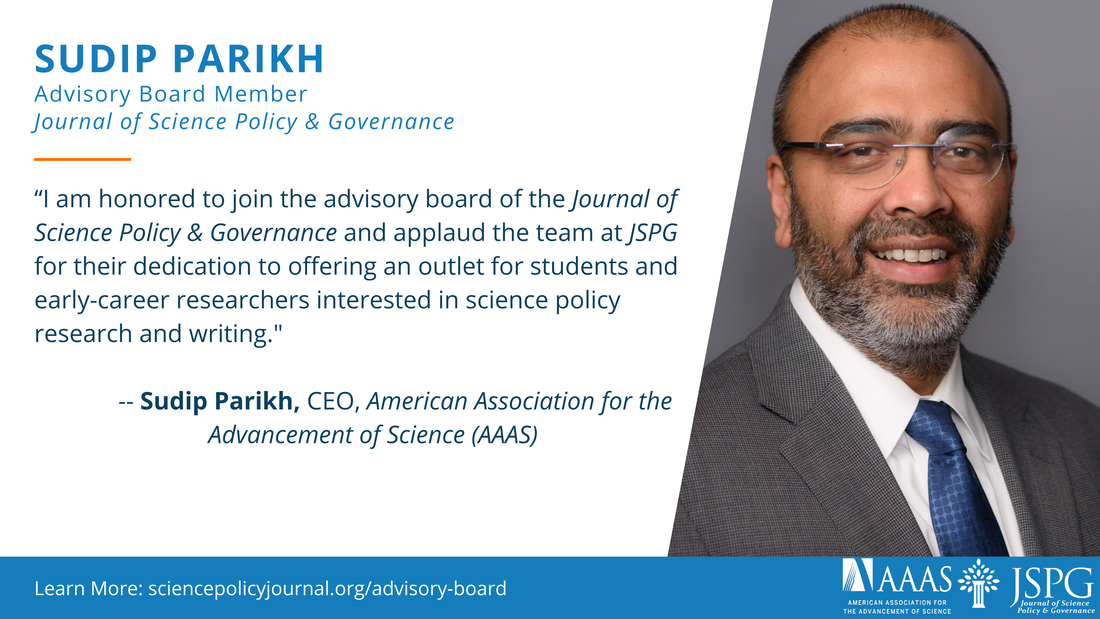
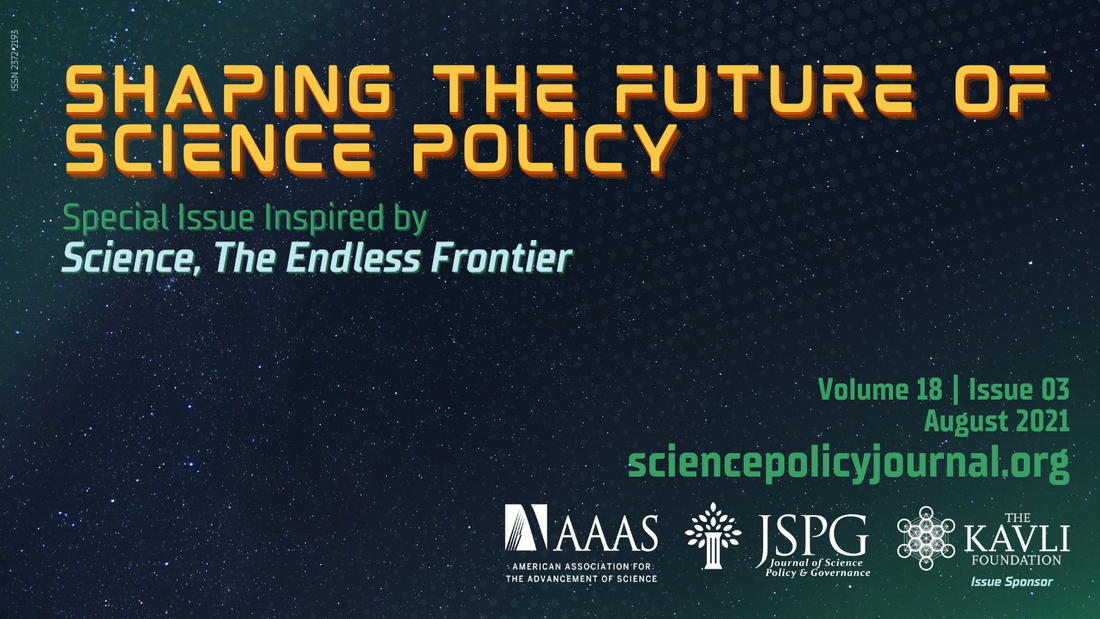
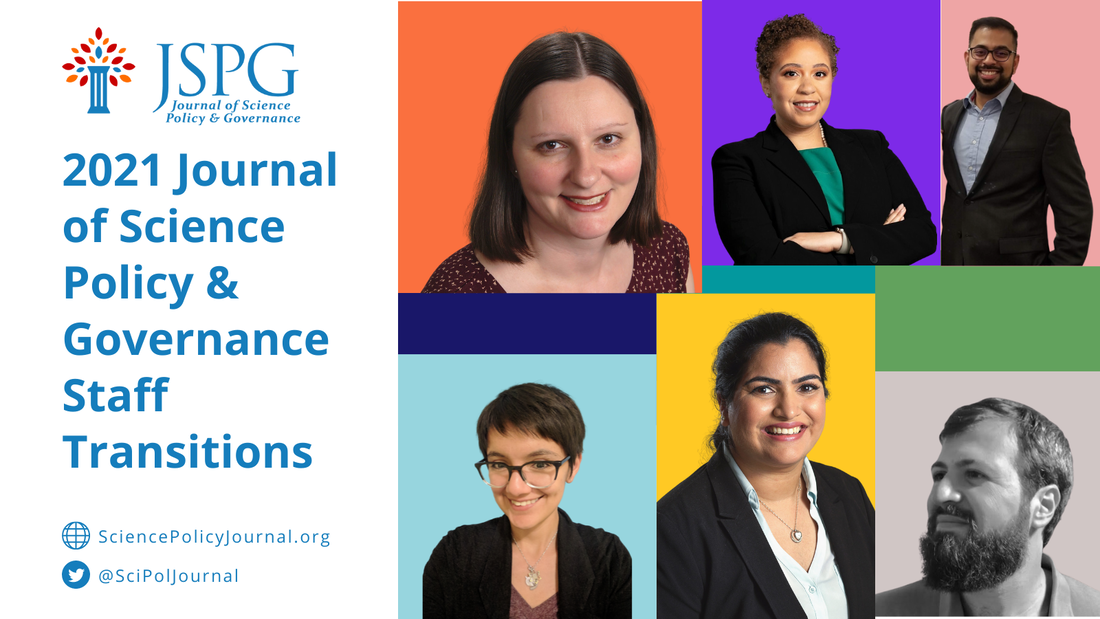
 RSS Feed
RSS Feed
